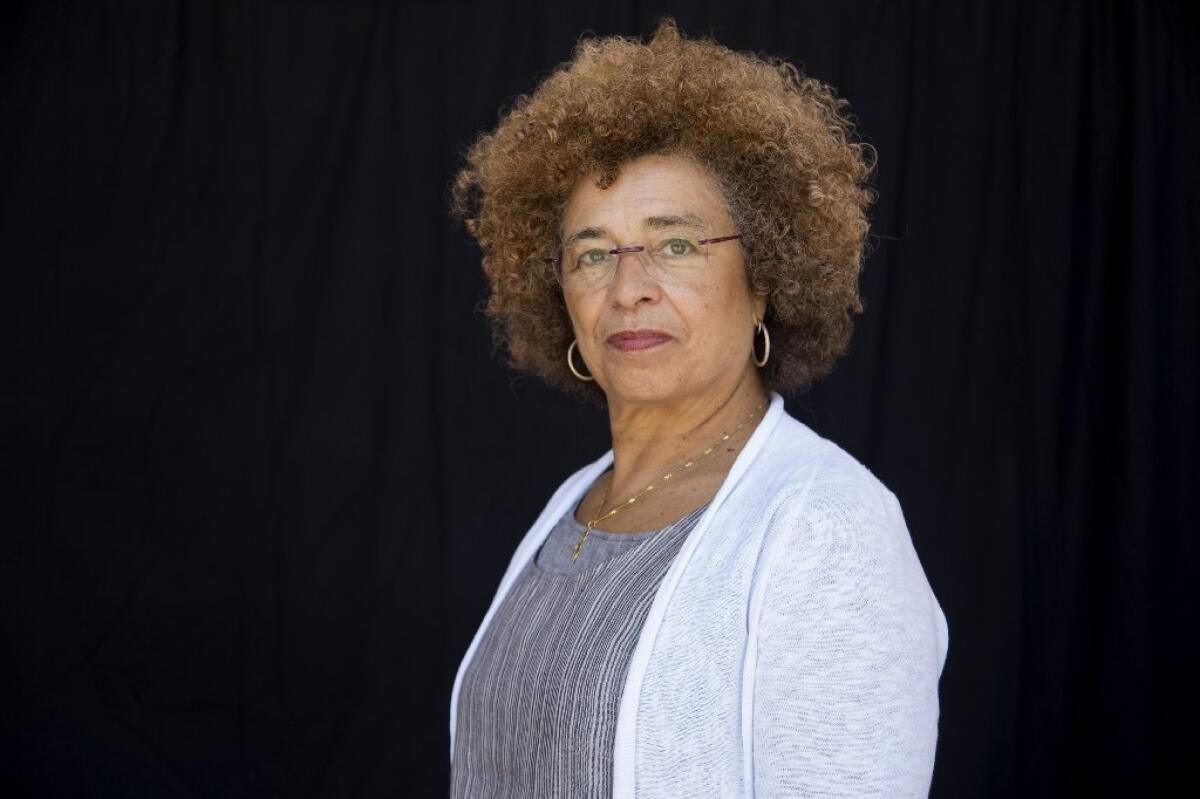Opinion: Angela Davis’ take on Donald Sterling: Not what you might expect

She’d more or less expected the question and so had already given it some thought: What about the Donald Sterling mess?
Angela Y. Davis and I were sitting in the offices of the gender studies department at UCLA, the campus where she began her tumultuous academic career 45 years ago.
Hers wasn’t exactly a typical tenure track. She braided teaching with radical politics, her work with the Black Panther and the Communist parties, and a trial and acquittal on charges that could have brought the death penalty: murder, conspiracy and kidnaping in a 1970 Marin County courthouse incident.
Davis is a regents professor at UCLA this semester, and her regents lecture this week in Royce Hall sold out a while ago.
From her firing from UCLA at the request of Gov. Ronald Reagan in 1970, to her onetime spot on the FBI’s most-wanted list, to the song dedicated to her by the Rolling Stones (“Sweet Black Angel”), to her dozens of books and her decades of teaching (she is now distinguished professor emerita at UC Santa Cruz), Davis has been on the front lines of American culture and politics. Her voice now is more measured but no less critical than it was in her raised-fist days.
And about Donald Sterling:
“My brother” (former NFL player Ben Davis) “said, ‘If you’re in L.A., you have to address this.’ ”
Her assessment connected dots other people didn’t even notice: “It may be helpful to have these moments when we recognize that racism is still very much embedded in the psyches of so many people in this country. But to think that we can deal with it simply by addressing particular individuals and not think about the fact that, as a society, we bear the imprint of that historical racism — I’m much more interested in having conversations about the way the structures of racism continue to operate.
“Even though people who express racist ideas may be treated in the way Donald Sterling is being treated, that doesn’t address, for example, the impact of [anti-affirmative action Proposition] 209 — that there are proportionally fewer black students on campuses than during the 1970s.”
At the same time, Davis contends, society hasn’t developed “a vocabulary that allows us to talk about racism except in those individual cases.”
Read more from Davis in this week’s “Patt Morrison Asks” column.
More to Read
A cure for the common opinion
Get thought-provoking perspectives with our weekly newsletter.
You may occasionally receive promotional content from the Los Angeles Times.











